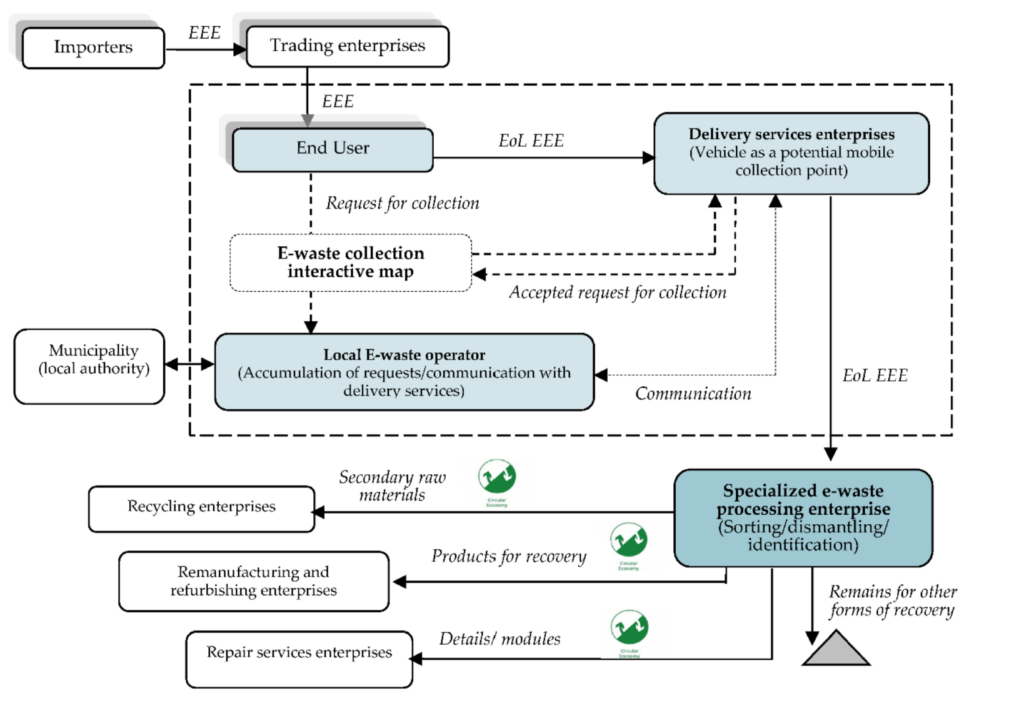Efficient electronic waste (e-waste) management is one of the strategies to save materials, critical minerals, and precious metals with limited global reserves. The e-waste collection issue has gained attention in recent years due to low collection rates of e-waste.
Shevchenko et al. (2021) aim to search for solutions in the e-waste collection sphere with close-to-zero transport and infrastructure costs and to minimize consumers’ efforts towards an enhanced e-waste management efficiency and collection rate. Along these lines, they developed an intelligent reverse system of e-waste from end-of-life electronics holders to local recycling infrastructures based on intelligent information technology tools involving local delivery services to collect e-waste and connect with interactive online maps of users’ requests. This system considers the vehicles of local delivery services as potential mobile collection points that collect and deliver e-waste to a local recycling enterprise with a minimum deviation from the planned routes.

Besides e-waste transport and infrastructure cost minimization, the proposed smart e-waste reverse system supports the reduction of CO2 through the optimal deployment of e-waste collection vehicles. Shevchenko et al. (2021) also advance a solid rationale for involving local e-waste operators as key stakeholders of the smart e-waste reverse system.
